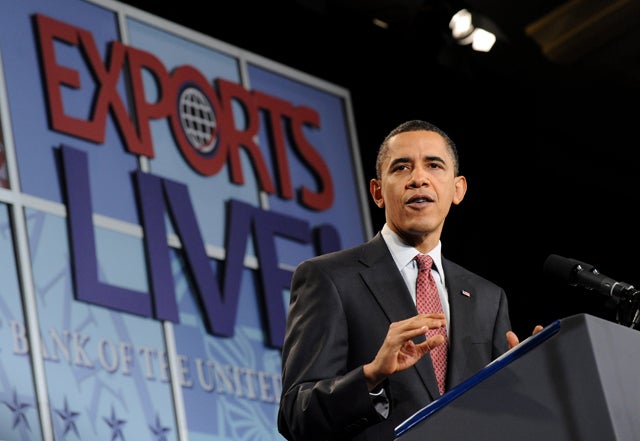Congressman: Export-Import Bank Is a Case of Corporate Welfare
Alison Meyer /
House leaders have reportedly struck a deal to vote on reauthorization of the Export-Import Bank next week despite strident opposition from conservatives. Heritage’s Bryan Riley has called it the “Fannie Mae for exporters.”
The Export-Import Bank provides taxpayer-subsidized loans to U.S. exporters. The bank’s charter will expire at the end of May. President Obama supports a four-year extension and, further, wants to increase the bank’s $100 billion loan limit by an additional $40 billion.
Speaking last week at Heritage, Rep. Justin Amash (R-MI) said the bank should be completely abolished. His legislation, the Export-Import Bank Termination Act, would end this form of corporate welfare. (Heritage Action’s Ashe Schow has more details on the bill.)
“[The Ex-Im Bank] basically provides government-subsidized, essentially loans, low-interest payments, and all the rest to foreign corporations that receive exports from American companies,” Amash explained. “It’s the kind of corporate welfare we should do away with. We should have a free-market system; taxpayers shouldn’t be on the hook for subsidized loans to anyone. I see it as just another Fannie Mae, Freddie Mac in the making and I have a bill to end it.”
Despite opposition from conservatives, House Majority Leader Eric Cantor (R-VA) and Minority Whip Steny Hoyer (D-MD) reportedly reached an agreement to extend the bank’s lending authority.
Supporters of the extension claim there is greater demand for the bank’s services because of combined effects of the collapse of the financial markets in 2008 and 2009 and the European debt crisis. Critics, however, complain that expanding the bank’s loan limit in this environment is asking for a repeat of Fannie and Freddie. Even at its best, the bank just picks winners of a few exporters and hopes there are no losers.
“Right now if you look at the Export-Import Bank, more than 90 percent of the benefits are going to just a few companies in the United States,” Amash said. “A few large exporters receive almost 90 percent of the benefits. If that’s not corporate welfare, I don’t know what is. That’s about as far from the free market as you can get.”

